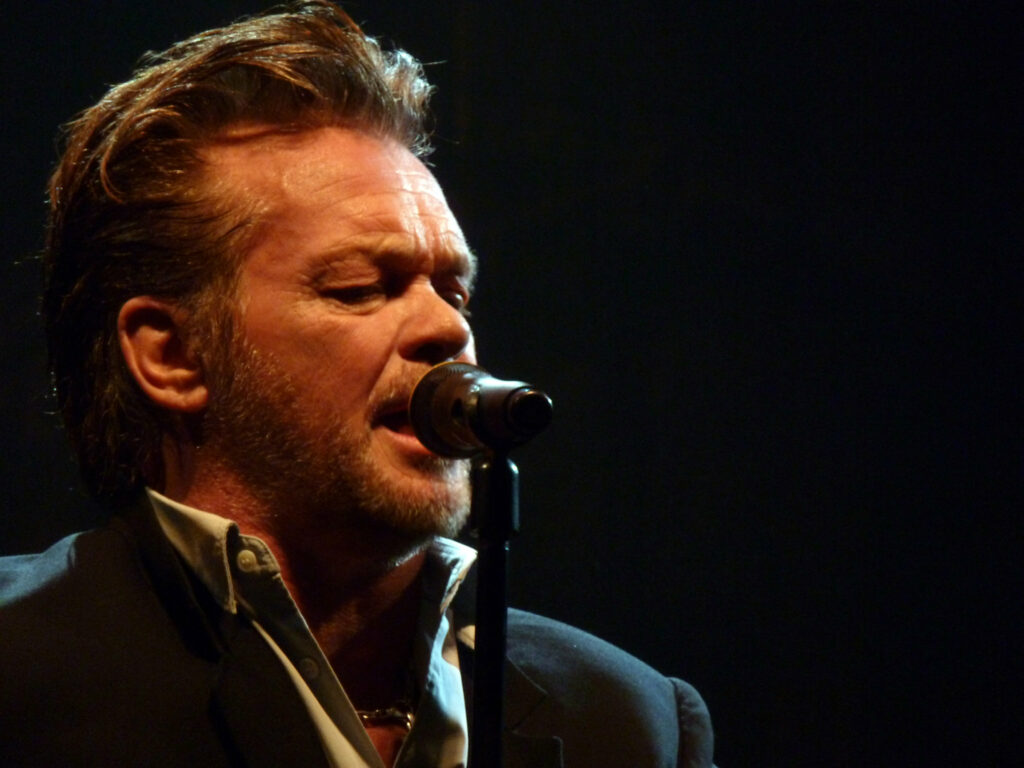Heartland rocker John Mellencamp claimed that vast majority of modern Black Americans don’t have better lives than those who were enslaved centuries ago.
The Jack & Diane singer made the insane assertion that only “1% or 2% of black people in America” have higher quality lives than they did when slavery was legal in the United States.
Mellencamp and Bill Maher butted heads over the prevalence of racism in the music industry in 2023 on a recent episode of the host’s Club Random Podcast.
The R.O.C.K. In The U.S.A. performer told Maher a story about how he learned what racism was when he got his start in the music business at 14-years-old as part of a mixed race band.
John Mellencamp thinks only 2% of black people in America have better lives than the slaves did.
This is why celebrities shouldn't be treated as special people. Most of them are idiots. pic.twitter.com/oTMQ1vVJBm
— David Hookstead (@dhookstead) August 28, 2023
Mellencamp said that he was “issued a gravity knife” by the band’s management to “stab the f**king audience,” who were predominately Black.
“I was not familiar with how hateful people were to Black people, until I was in [his band] the Crepe Soul,” he stated. “More than learning how to sing or dance … I learned about hatred.”
The conflict began when Maher said that the same scenario wouldn’t happen today, and Mellencamp claimed it “absolutely would.”
Maher asked if he had seen a similar situation in 2023, and the musician said that they both had, which the host denied.
“Turn the f**king news on, you’ll see,” Mellencamp alleged.
Maher noted that racism does exist in the country, but that in 2023, young music lovers don’t strike him as a racist crowd.
Why @johnmellencamp doesn't trust the government.
Watch the full ep of Club Random w/ @billmaher here: https://t.co/LNnOEfHUby pic.twitter.com/wvT4HWUKyA
— Club Random with Bill Maher (@ClubRandom_) August 29, 2023
The 80s rocker repeatedly pushed back that racism exists in the music industry, but could not point out a clear example.
Maher said he believed what they were actually arguing about that racism isn’t any better today than it was decades ago, and pointed out that it was “okay” just like Mellencamp sang about in his 2014 single, “Freedom of Speech.”
“I wrote a song that I never recorded because I thought it was wrong but it was called ‘From the F**king Cotton Fields to the Playing Fields,’” he detailed.
“My point is that, yes, so what? Us as white people love to have black people entertain us.”
“I would say that the playing fields are a lot better than the cotton fields, that’s what I would say about that,” Maher pushed back.
“Maybe I’m crazy, John, but it seems like making no money as a slave picking cotton, it was not as good as playing left field for the Yankees.”
Why @johnmellencamp believes climate change is the core of the earth heating up.
Full episode of Club Random w/ @billmaher & @johnmellencamp here: https://t.co/LNnOEfHUby pic.twitter.com/T3NI2BasUY
— Club Random with Bill Maher (@ClubRandom_) August 30, 2023
That’s when Mellencamp interjected with his absurd claim that there’s “No doubt there is 1% or 2% of black people in America who have a better life.”
“Oh, stop. That’s what you think? 1 percent or 2 percent?” Maher protested.
The Hurts So Good singer backpedaled and admitted that he was “just pulling the number” out off his posterior, and that it could be as high as 10%.
Let us know your thoughts on the newest ep w/ @johnmellencamp ! Tune in wherever you get your podcasts 🎧
Watch Now: https://t.co/WBeMj7gg8a pic.twitter.com/MlpPWzWFUz
— Club Random with Bill Maher (@ClubRandom_) August 28, 2023
Maher told him that the number belonged where he pulled it out of, and asserted that his claim was “just not true,” and that government statistics told a different story.
Elsewhere in the interview, Mellencamp spoke about his distaste for rap music, over artist’s persistent use of the N-word in songs.
“Me and [Public Enemy’s] Chuck D did a song 20 years ago. We were talking about the N-word. We were talking about how it’s not supposed to be used,” he explained.
“That’s what I have against — not against, but why I’m not a big fan of rap music,” the musician went on.
“You guys are selling out what the people stood up for and fought for, and you’re making money off of it selling it to white kids? I don’t like it.”

